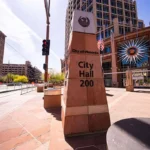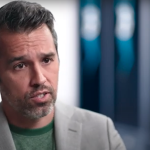Six states and Washington, D.C., have referendums on Election Day to end closed primary systems, opening the door for independent voters to engage more in the political process.
Why it matters: Polls show Latino voters ages 18-29 lean left, but nearly one-third identify as independents. Closed primaries mean they can’t vote until the general election.
State of play: 19 states have at least one closed or partly closed primary, while most others have some type of open primaries, though there are a variety of ways states do this. It also depends on whether it’s a presidential, congressional or state election.
- Alaska, California, Louisiana and Washington have abolished party primaries for congressional elections and replaced them with open, all-candidate primaries.
Now, Arizona, Colorado, Idaho, Montana, Nevada, South Dakota and Washington, D.C., are considering ballot reforms that would open primaries.
- Advocates got the measures on the ballot despite resistance from state parties and political interest groups who want to force party registration for data-obtaining purposes and prevent what they say are non-party activists from influencing elections.
By the numbers: Nearly 23.5 million independent voters were kept out of the closed presidential primaries this year in 22 states, according to Unite America, a nonprofit election-reform organization.
- New data from the organization shows that this year, 87% of U.S. House seats considered safe for one party or the other have already been decided by just 7% of voters in party primaries.
- 15.7 million registered independent voters in those House races weren’t able to participate in primary voting.
What they’re saying: “This movement is about reforming the electoral system, not just (in) specific states, but across the country,” Luis Acosta-Herrera, a partner at the government and public affairs firm Oracle Strategies, tells Axios.
- Acosta-Herrera, who is pushing the ballot measure in Arizona, says the reform effort seeks to dismantle barriers to engagement so that independents can join the process.
- “Independents are independents for a reason. They’re independents because they don’t believe in the party platform of either party or any third parties.”
Between the lines: Gen Z Latinos are part of the most racially and ethnically diverse generation in U.S. history, Melissa Deckman, author of the recent “The Politics of Gen Z: How the Youngest Voters Will Shape Our Democracy,” tells Axios.
- Their views on religion, racial equity and reproductive rights could signal a dramatic realignment of American culture, but they shun declaring loyalty to parties, she says.
Plus, closed primaries often result in extreme candidates because only hardcore partisan voters can cast ballots.
What we’re watching: If the ballot measures succeed, advocates in other states could also push for open primaries in their states.
- Democratic lawmakers in New Mexico, the state with the highest percentage of Hispanic residents, have resisted efforts to open the state’s closed primaries. Voter participation hit around 23% in the presidential primary.
Subscribe to Axios Latino to get vital news about Latinos and Latin America, delivered to your inbox on Tuesdays and Thursdays.











